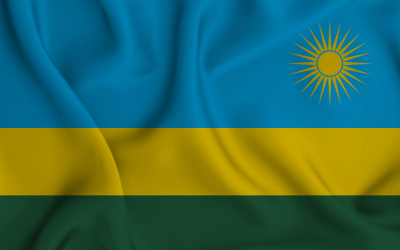Is Rwanda Safe?

Blog Post by Kate Ritchie
Is Rwanda safe? This was the key question the Court of Appeal had to determine in AAA and Others v The Secretary of State for the Home Department [2023] EWCA Civ 745.
The High Court had previously decided in December 2022 that Rwanda is a safe third country; the UK government’s proposed policy of deporting asylum seekers to Rwanda was therefore considered compliant with the Human Rights Act 1998 and Article 3 of the European Convention on Human Rights (ECHR), which prohibits torture and inhumane treatment. This policy reflects the terms of an understanding between the UK and Rwanda, documented in a Memorandum signed in April 2022 and associated diplomatic correspondence (collectively, the Rwandan Agreement). The intention is that asylum seekers selected for deportation from the UK should have their application for asylum considered in Rwanda (not the UK). If successful, they should be allowed to make a new life in Rwanda; if unsuccessful, they could be returned to their country of origin (on the basis that if the application is not allowed, that country is presumably safe).
The Court of Appeal, by a majority of two to one, allowed the appeal, reversing the High Court ruling. The Court of Appeal concluded that even if Rwanda might be considered safe itself, there are notable flaws in its asylum system. These flaws mean there is a substantial risk of refoulement (that is, onward deportation of legitimate asylum seekers to an unsafe country, where they could be subjected to persecution, torture or inhumane treatment). Refoulement is deemed, among other things, a breach of Article 3 of the ECHR. The majority were of the view that the High Court had misapplied the test in Soering v United Kingdom (1989) 11 EHRR 49 and had given too much credence to Rwandan governmental assurances in the Rwandan Agreement, when it should have taken a broader view of Rwanda’s asylum system and its historical record. Evidence of relevant defects in this system (including capacity issues as well as lack of training and deficiencies in procedural rigour and transparency) was submitted to the Court by the United Nations High Commissioner for Refugees (UNHCR) – for example, a 100% rejection rate of nationals from Afghanistan, Syria and Yemen, due to apparent misunderstandings over the meaning of refoulement. It was also noted that an agreement between Rwanda and Israel (similar in nature to the UK agreement) had been breached, despite governmental assurances that refoulement would not take place. In the leading judgment, Master of the Rolls, Sir Geoffrey Vos, commented that what was particularly troubling was that “the structural institutions that gave rise to past violations remain in Rwanda today” [at para 104].
The UK government has confirmed that it will seek permission to appeal to the Supreme Court. In view of this, the dissenting judgment of the Lord Chief Justice, Lord Burnett, merits scrutiny, as his reasoning is likely to resurface. Lord Burnett concluded, unlike his fellow judges, that the risk of refoulement by Rwanda is low. Whilst acknowledging the cogency of the evidence submitted by the UNHCR, he argued that those instances of refoulement arose in very different circumstances and that the safeguards in the Rwandan Agreement should afford sufficient protection. For example, he asserted that the provision of mobile phones and internet access under this agreement to those deported should facilitate informal monitoring. This imposes, however, potentially unrealistic and unreasonable expectations on asylum seekers to police their own treatment, some of whom may not speak English or have access to legal support. It also places undue faith in an agreement that has no legal force, affords no legal rights to asylum applicants and is spread over several documents.
Burnett observed practical obstacles to refoulement, especially the lack of return agreements between Rwanda and third countries. Contrary to his fellow judge, Lord Justice Underhill, he did not, though, note the risk that such agreements might be entered into at some point in the future. In addition, Lord Burnett contended that supervision by the Monitoring Committee, referred to in the Rwandan Agreement, provides ‘significant reassurance’ of accountability [para 506]. However, the members of this committee are appointed by the UK and Rwandan governments (four members each), undermining the assertion of independence. Further investigation reveals that this committee was not even established when the UK Government had attempted its first deportations in April 2022. Of those now appointed by the UK Government: one is a former Brexit Party candidate; one is the architect of Australia’s controversial offshoring of asylum seekers on Nauru and Manus Island; one has been criticised for their support of Indian legislation which allegedly discriminates against Muslims, and one has co-authored a paper which talks at length of the threats that migration poses to the security of receiving states. These appointments, therefore, do not inspire confidence that the human rights of asylum seekers will be at the forefront of the Monitoring Committee’s objectives.
Lord Burnett also addressed allegations of compromised judicial independence in Rwanda. He noted that such claims have been accepted by the Foreign Office but argued that comfort could be drawn from the fact that they have only arisen in relation to cases with a political dimension and that similar issues are unlikely to arise in mere ‘administrative determination of asylum claims’ [para 514]. Whilst superficially plausible, this is a specious argument. Lord Burnett may have a point that the Rwandan government will want to prove that their asylum system is robust and effective, but this surely includes the initial processing stages of that system, which are in the hands of government officials, and which have been subject to some criticism by the UNHCR [para 183]. The Rwandan government is unlikely to want doubt cast on the adequacy of those initial stages which is what will happen if appeals are allowed by the courts. Such cases may well be vulnerable to political pressures, therefore, even if they are theoretically focused on administrative issues. In summary, the rationale presented by Lord Burnett on this, and the other points discussed here, is not wholly convincing.
Whether the UK government will rely on Lord Burnett’s reasoning or on other arguments remains to be seen. What is clear is that the question: ‘Is Rwanda safe?’ is not resolved but destined to be debated again in the Supreme Court and, possibly, the European Court of Human Rights. The fate of many asylum seekers rests on it.

Kate Ritchie
Kate Ritchie is a Fellow of the Higher Education Academy and a Lecturer in Law (Central Academic) at The Open University (OU). She has also worked as an Associate Lecturer with the OU. Kate's research is primarily focused on the rights of migrants and, more generally, the theme of belonging. In relation to the latter, she has been involved in evaluating a peer mentoring project aimed at reducing isolation for Level 1 students and exploring how online platforms, such as Whatsapp, can facilitate this.